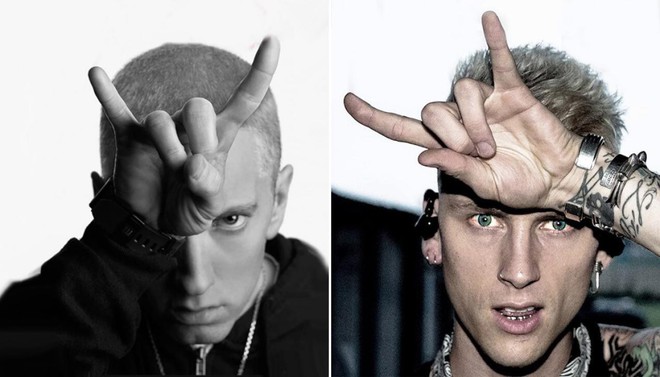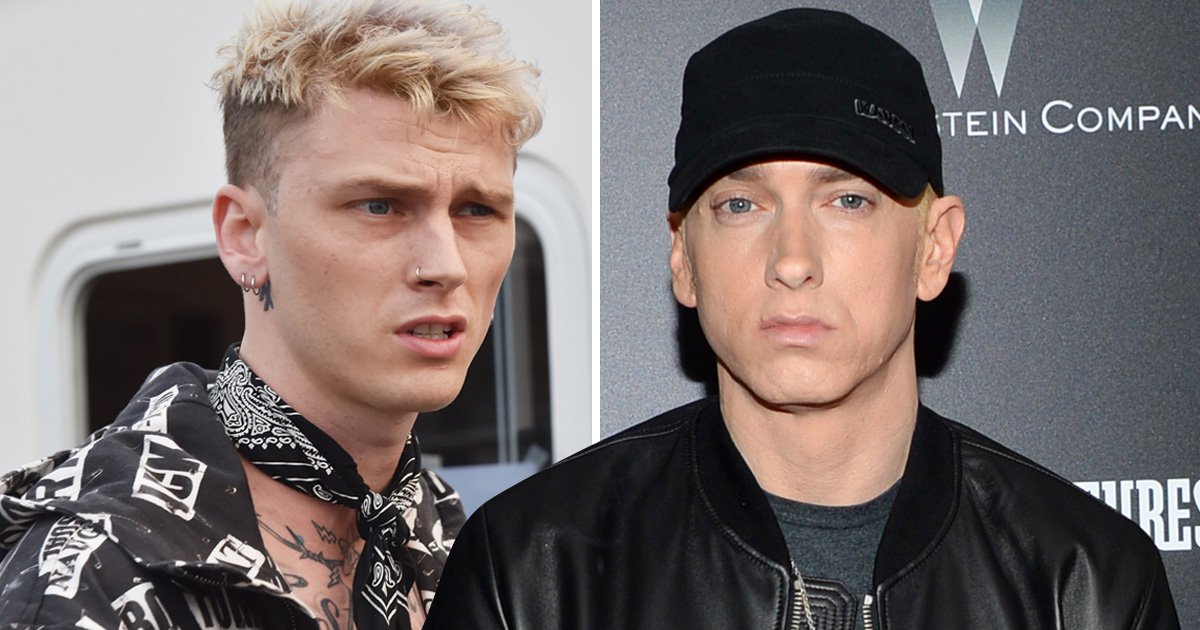The world of hip-hop is no stranger to feuds, but few have captivated audiences as much as the explosive clash between Eminem and Machine Gun Kelly (MGK). Their high-profile beef, which played out through diss tracks and social media, not only grabbed headlines but also sparked significant interest in both artists’ careers. The big question remains: Did this feud catapult both rappers to staggering new heights of wealth?

The conflict began in 2018 when Eminem, widely regarded as one of the greatest rappers of all time, released a surprise album, “Kamikaze.” On the track “Not Alike,” Eminem took aim at MGK, reigniting a tension that had been simmering since 2012. MGK responded with “Rap Devil,” a fiery track that quickly went viral, prompting Eminem to fire back with “Killshot.” The back-and-forth not only fueled intense fan debates but also led to a surge in streaming numbers and media coverage for both artists.
One of the immediate impacts of the feud was the dramatic increase in online engagement. Both “Rap Devil” and “Killshot” amassed millions of views within hours of their release, breaking records on platforms like YouTube. This surge in popularity translated into higher streaming revenue and increased sales of their music catalogs. Eminem’s “Killshot” became one of the most-watched hip-hop videos in history, while MGK’s “Rap Devil” earned critical acclaim and solidified his place in the rap scene.

The financial implications extended beyond streaming numbers. The heightened visibility led to lucrative opportunities for both rappers. Eminem, already a titan in the industry, saw renewed interest in his back catalog, with fans revisiting his previous works. This spike in activity boosted his overall music sales and streaming income.
Additionally, Eminem’s brand, Shady Records, benefited from the increased attention, further cementing his legacy in the industry. For Machine Gun Kelly, the feud was a game-changer. Prior to the clash, MGK had a loyal fanbase but struggled to achieve mainstream recognition on the same level as Eminem. The feud elevated his profile significantly, leading to new endorsement deals, a spike in concert ticket sales, and greater demand for his music.
The increased exposure also allowed MGK to diversify his career, successfully transitioning into acting and exploring new musical genres, including pop-punk with his album “Tickets to My Downfall.” Industry analysts suggest that the feud generated substantial economic benefits for both artists. The public’s fascination with their rivalry created a perfect storm of media coverage, social media buzz, and fan engagement.
This environment not only boosted their immediate earnings but also expanded their long-term earning potential by growing their fanbases and solidifying their cultural relevance.
However, it’s important to note that while the feud brought financial gains, it also highlighted the personal and artistic stakes involved in such conflicts. Both rappers used their platforms to express genuine grievances and artistic critiques, reminding audiences that beneath the spectacle lies a deep-seated passion for their craft.

In conclusion, the explosive feud between Eminem and Machine Gun Kelly undeniably catapulted both rappers to new heights of wealth and fame. The increased visibility and engagement translated into significant financial rewards, enhancing their careers and expanding their influence in the music industry. As the dust settles, both Eminem and MGK continue to thrive, their rivalry a testament to the enduring power of hip-hop feuds in shaping the careers of those involved.





